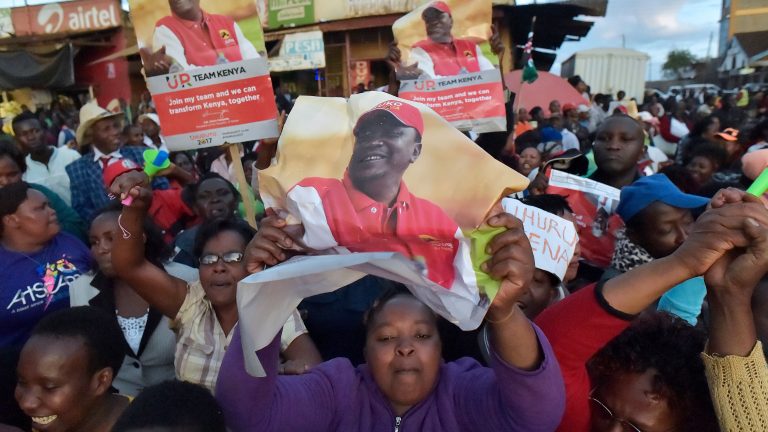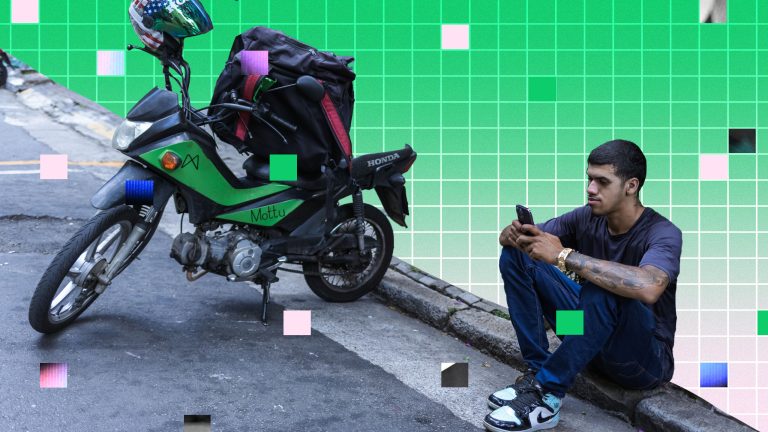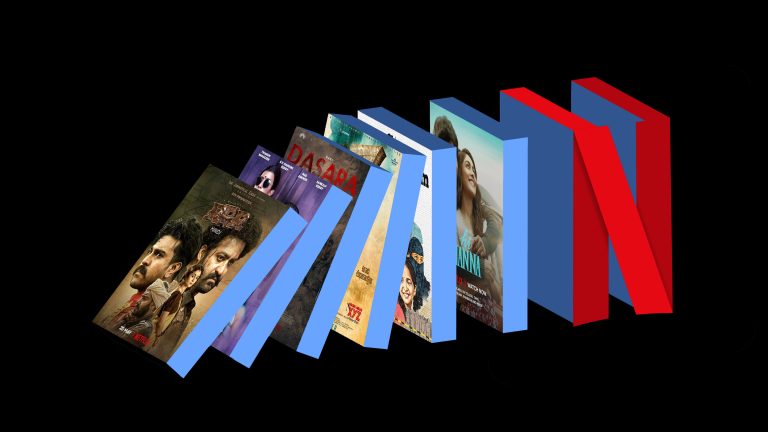Earlier this year, as Kenya’s High Court was reviewing constitutional reforms proposed by the president’s controversial Building Bridges Initiative (BBI), researchers from the Mozilla Foundation started to notice something strange: a series of hashtags undermining the court and boosting the BBI began trending on Twitter. They later uncovered thousands of accounts promoting pro-BBI content and attacking the country’s judiciary and civil society actors. The findings were detailed in a new report released Thursday, which sheds light on a growing industry for paid political propaganda on social media.
Mozilla researchers interviewed people who participated in the BBI disinformation campaign, who reported being paid roughly $10 to $15 a day to tweet hashtags via the mobile wallet app M-Pesa. The hired trolls claimed not to know where the money was coming from. “You have to understand that we live in a country where so many people are living on a dollar a day,” said Brian Obilo, a fellow at the Mozilla Foundation based in Nairobi and a co-author of the report. “It’s very, very hard for young people to find opportunities that can help them better themselves economically.”
The researchers also found that a number of verified accounts participated in the campaign — including three belonging to singers in a Kenyan choir — which helped make pro-BBI hashtags like #Justice4Sale and #AnarchistJudges trend on Twitter. In some cases, Twitter ran paid advertisements against the hashtags. “It means Twitter is able to monetize off disinformation,” said Odanga Madung, a co-author of the BBI report and a fellow at the Mozilla Foundation.
The researchers identified over 20,000 tweets and retweets sent from 3,742 accounts in Kenya between May and June of this year, which participated in 11 different hashtags. While Twitter said it removed or penalized a number of the accounts Mozilla had identified for violating its spam and platform manipulation policies, at the time of publication, some remained active. “Using both technology and human review, we proactively and routinely tackle attempts at platform manipulation and mitigate them at scale by actioning millions of accounts each week for violating our policies,” a spokesperson for Twitter said in a statement.
While the BBI campaign sought only to influence Kenyan politics, it’s part of a burgeoning “disinformation-for-hire” industry around the world, in which paid actors, often connected to political figures, are funneled cash to spread propaganda and intimidate opponents on social media. The financial structures behind these schemes are often opaque. “The money passes through many hands before it eventually gets to the person who actually goes ahead to publish [the content],” said Madung. “They don’t know exactly who they are working for, but they know which side they’re on.”

Since 2009, more than $60 million has been collected by firms that promote messages using bots and other amplification strategies, according to research from the Oxford Internet Institute. “That’s only the little slice we know about,” said Samantha Bradshaw, who worked on the Oxford study and is currently a fellow at the Stanford Internet Observatory. She suspects that the disinformation-for-hire industry is much larger than what researchers have so far been able to estimate. “It’s so cheap now that you don’t need a lot of resources or a lot of money to be able to launch these kinds of campaigns anymore,” she said.
Madung said that Twitter is a particularly appealing platform for disinformation outfits looking to save on costs. Unlike Facebook, which often requires that users pay to promote content, hashtags can make it onto Twitter’s Trending section for free. The feature is controlled by an algorithm that “identifies topics that are popular right now,” sometimes even when that popularity may be manufactured.
In Kenya, Twitter is an influential space for public discourse, although it’s only used by a small percentage of the population. “Journalists, politicians, civil society actors — all the important people are on Twitter,” said Madung. “So if you are trying to get your message out, it is the most important platform.”
It’s not clear who may have paid for the BBI campaign, but Obilo said the ultimate goal was seemingly to “undermine faith in the judiciary.” The High Court declared the reforms proposed by the BBI unconstitutional in May, and an appeals court upheld that ruling in August.
“We can’t just think of disinformation as something that happens at elections only.”
Bradshaw said that platforms like Twitter are often not equipped to recognize and respond to disinformation efforts in non-Western contexts. Unlike simply spotting a shared IP address, an example of what Bradshaw calls an “account pattern,” identifying coordinated inauthentic behavior in the Global South relies on being able to recognize “content patterns,” or clues that might only be evident to a specific local audience.
“A lot of their tools are automated,” said Bradshaw. “And all of this automation is often built off of Western English language notions of what bad content is and how it sounds and how it’s phrased.”
During elections, tech platforms now often ramp up their monitoring efforts in certain countries, allocating extra resources and even setting up “war rooms” to respond rapidly to misinformation and hate speech that could influence the vote. But a pop-up misinformation strategy may allow campaigns targeted at legislation, like the BBI one, to go undetected. “We can’t just think of disinformation as something that happens at elections only,” said Bradshaw. “It’s usually something that’s cyclical and has a life cycle and starts to crop up months, even years, before elections actually happen.”
Kenya’s next presidential election is set to take place in August of next year.



